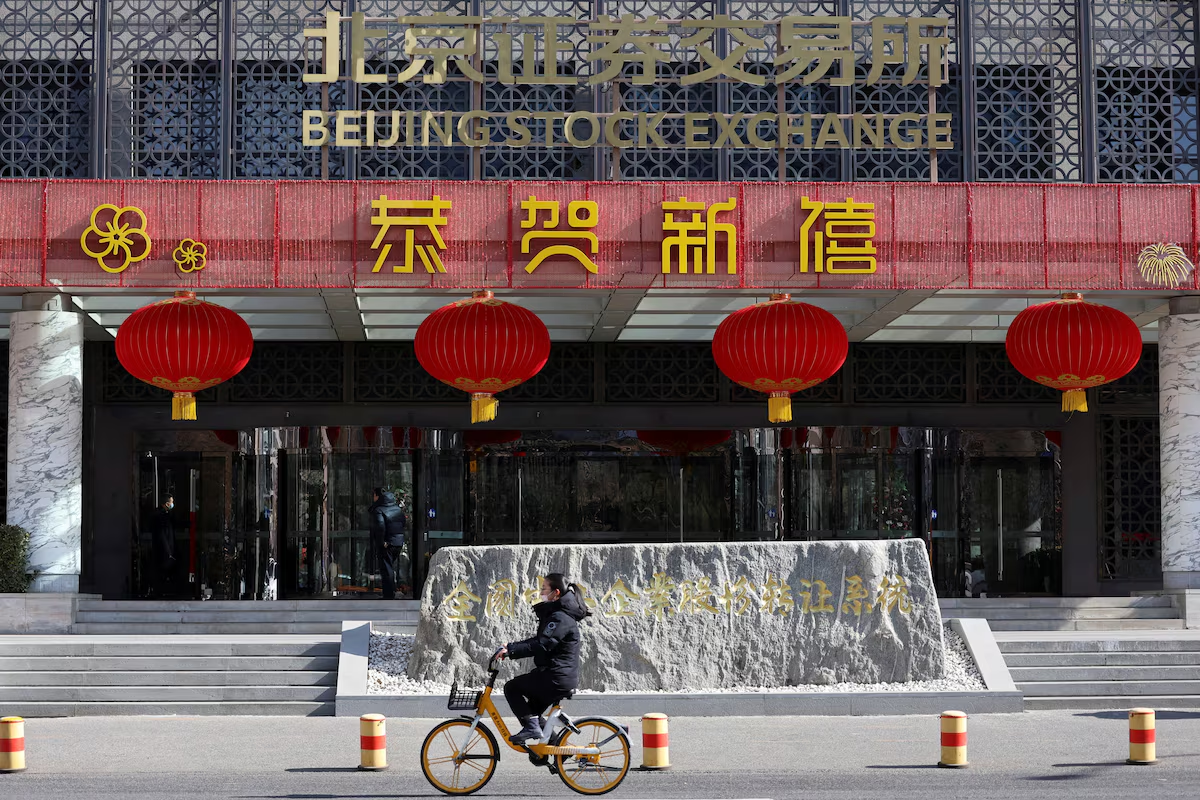Asian stock markets saw modest gains on Monday, with Hong Kong’s tech sector leading the way. Optimism surrounding China’s AI industry helped sustain momentum, while Japan’s surprisingly strong economic growth lifted the yen against the dollar.
Meanwhile, a weaker U.S. retail sales report added to global economic concerns. Investors also closely monitored geopolitical developments, particularly reports that Saudi Arabia will host discussions on the Russia-Ukraine conflict, though details on participation remain uncertain.
Investor sentiment improved slightly as the immediate threat of new U.S. tariffs was postponed until April. However, concerns persisted over potential levies tied to value-added taxes (VAT) in other countries. If the U.S. were to impose an additional 20% tariff on all EU imports—on top of other possible tariffs—it could significantly impact global economic growth.

Ray Attrill, head of FX research at National Australia Bank, described the potential VAT-based tariffs as “a truly terrifying prospect” for the global economy.
READ ALSO: Zelensky Warns Ukraine’s Survival Hinges on U.S. Support Amid Trump-Putin Talks
Adding to trade policy concerns, the Financial Times reported that the European Commission is considering stricter import restrictions on certain food products to protect local farmers, a move reminiscent of former U.S. President Donald Trump’s stance on reciprocal trade policies.
Despite trade uncertainties, markets remained resilient. Asia-Pacific shares outside Japan inched higher, and Tokyo’s Nikkei made modest gains after Japan posted an annualized 2.8% economic growth rate in the fourth quarter.

The yen’s rise to 151.65 per dollar, however, limited further advances. South Korean and Taiwanese shares also moved higher, while Chinese blue-chip stocks saw slight declines.
Hong Kong’s market, on the other hand, stood out after a 7% surge last week, fueled by optimism that Chinese firms could develop low-cost AI solutions to compete with Western technology.
READ ALSO: Benzema Speaks Out on Golden Boot Race with Ronaldo in Saudi Pro League
The recent rally in Hong Kong’s market was further driven by Alibaba’s impressive 24% gain, following reports that the company will partner with Apple to enhance AI capabilities for iPhones in China.
Investors are now anticipating Alibaba’s earnings report on Thursday, with options markets suggesting the stock could swing by 7.5% in either direction based on the results.

Goldman Sachs has revised its outlook for Chinese equities, predicting that AI adoption could boost earnings per share by 2.5% annually over the next decade. This AI-driven growth could elevate Chinese stock valuations by 15-20%, potentially attracting $200 billion in fund inflows.
European markets have also been on a steady upward trend. The pan-European STOXX 600 index has risen for eight consecutive weeks, marking an 8% increase since the start of the year. Early trading on Monday saw a steady performance in European futures, with slight gains in German and UK markets.
While Asian markets made small gains, the real excitement came from Hong Kong’s booming tech sector and growing confidence in China’s AI industry. Japan’s strong economic performance and the delay in new U.S. tariffs provided some relief for investors, but concerns over trade restrictions and geopolitical tensions continue to loom large.
REUTERS
Discover more from Cine critique
Subscribe to get the latest posts sent to your email.

